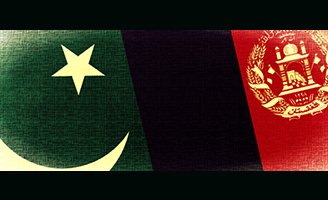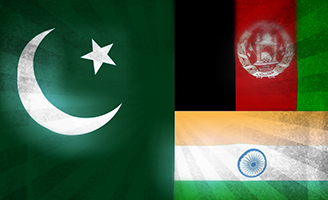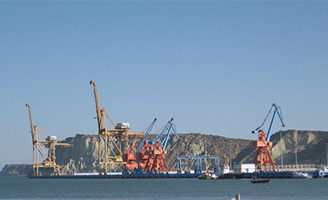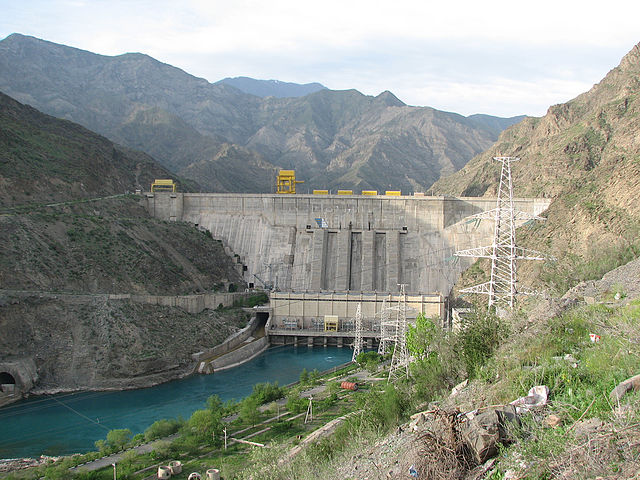CACI Analyst, April 15, 2015
Contents
Analytical Articles
CHINA AND PAKISTAN PREPARE TO ESTABLISH ECONOMIC CORRIDOR, by Ghulam Ali
DAGESTAN'S INSURGENTS SPLIT OVER LOYALTIES TO CAUCASUS EMIRATE AND IS, by Emil Souleimanov
GEORGIA'S ECONOMIC CRISIS AND POLITICAL BRINKMANSHIP, by Ariela Shapiro
THE CHINA-ARMENIA DECLARATION AND BEIJING'S PROSPECTS IN THE SOUTH CAUCASUS, by Eduard Abrahamyan
Field Reports
GEORGIA'S FORMER DEFENSE MINISTER BLAMES GOVERNMENT FOR DAMAGING STATE INTERESTS, by Eka Janashia
ARMENIA-EU RELATIONS ENTER A NEW PHASE, by Erik Davtyan
AZERBAIJAN AND THE IRAN AGREEMENT, by Mira Muradova
KYRGYZSTAN MARKS FIFTH ANNIVERSARY OF REVOLUTION, by Arslan Sabyrbekov
Afghanistan-Pakistan Intelligence Cooperation and the Prospect of Peace
By Sudha Ramachandran (06/10/2015 issue of the CACI Analyst)
Pakistan and Afghanistan have signed a landmark deal providing for cooperation between their intelligence agencies. Jointly tackling terrorism is the ostensible aim of the pact. Will it help bring the Taliban to the negotiation table and contribute to Afghan reconciliation or will it trigger a new round of fighting in Afghanistan? The pact’s future is uncertain as it faces fierce resistance in Afghanistan. More importantly, Pakistan has not reciprocated Afghan President Ashraf Ghani’s gestures. Is Ghani’s plan to bring peace to Afghanistan backfiring?

Pakistan and Afghanistan-India Cooperation
By Sudha Ramachandran (05/13/2015 issue of the CACI Analyst)
Afghan President Ashraf Ghani’s recent overtures to Islamabad have contributed to a perception of him as pro-Pakistan. There is concern in India that the strong relationship it built with Kabul during Hamid Karzai’s presidency is under threat and that it is losing ground to Pakistan. However, India should not be unduly worried on this score. Ghani’s recent visit to Delhi, though long overdue, underscored Delhi’s and Kabul’s shared vision on regional trade.

China and Pakistan Prepare to Establish Economic Corridor
By Ghulam Ali (04/15/2015 issue of the CACI Analyst)
Beijing and Islamabad have completed the groundwork for the implementation of the China-Pakistan Economic Corridor (CPEC). A final decision with a clear roadmap is expected during Chinese President Xi Jingping’s much-awaited visit to Pakistan in May 2015. The CPEC is the largest project not only in the relationship between the two states, but also in Pakistan’s history. The future of Sino-Pakistan relations will hinge upon corridor’s success.

CASA 1000 – High Voltage in Central Asia
By Franz J. Marty (03/04/2015 issue of the CACI Analyst)
CASA-1,000 envisages hydro-electricity exports from Kyrgyzstan and Tajikistan to Afghanistan and Pakistan. Due to the security situation in Afghanistan and Pakistan, a study designated CASA-1,000 a high risk project. Recently concluded agreements between the participating countries, the currently ongoing procurement and the completed construction of another transmission line nonetheless promise a realization.






